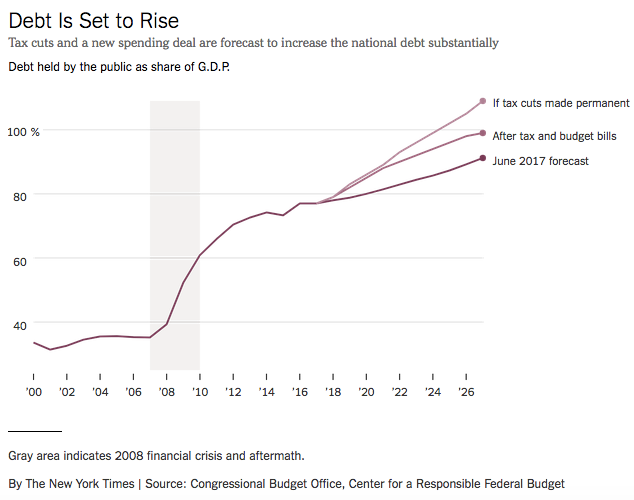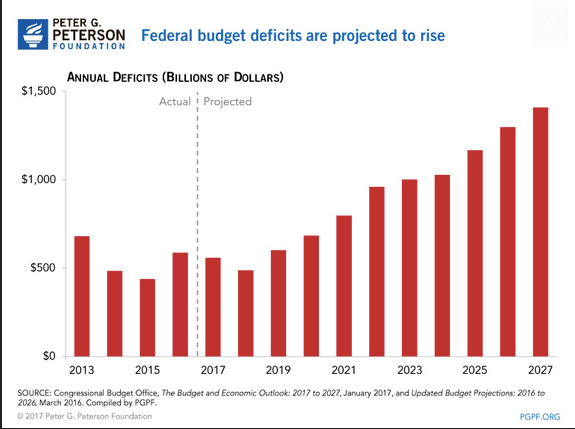WASHINGTON — Big government is officially back in style.
Republicans propelled themselves to power in Washington by promising an end to fiscal recklessness. They are now embracing the kind of free spending and budget deficits they once claimed to loathe.
Congress is debating a bipartisan spending deal that would blow through the caps imposed by the 2011 Budget Control Act, unlocking $300 billion in additional spending for the military and domestic programs over the next two years. That comes on top of last year’s $1.5 trillion tax cut package and as the White House prepares to unveil on Monday a $1.5 trillion infrastructure plan that would require $200 billion in government funding.
While the White House says it plans to offset that $200 billion through unspecified cuts, none of the other spending is paid for at a time when the nation’s debt already tops $20 trillion.
The long-term implications of all this borrowing put the United States on track to ultimately owe more to its creditors than the economy produces over the course of a year. The nonpartisan Committee for a Responsible Federal Budget projects that the United States will run $2 trillion annual budget deficits by 2027 and have a debt-to-gross domestic product ratio of 105 percent — a level not seen since the end of World War II.
“With this deal, we will experience trillion-dollar deficits permanently,” said Andy Roth, vice president of the conservative Club for Growth. “That sort of behavior, the last time I checked, is not in the Republican platform.”
What’s Hidden in the Senate Spending Bill?
The Era of Fiscal Austerity Is Over. Here’s What Big Deficits Mean for the Economy.





